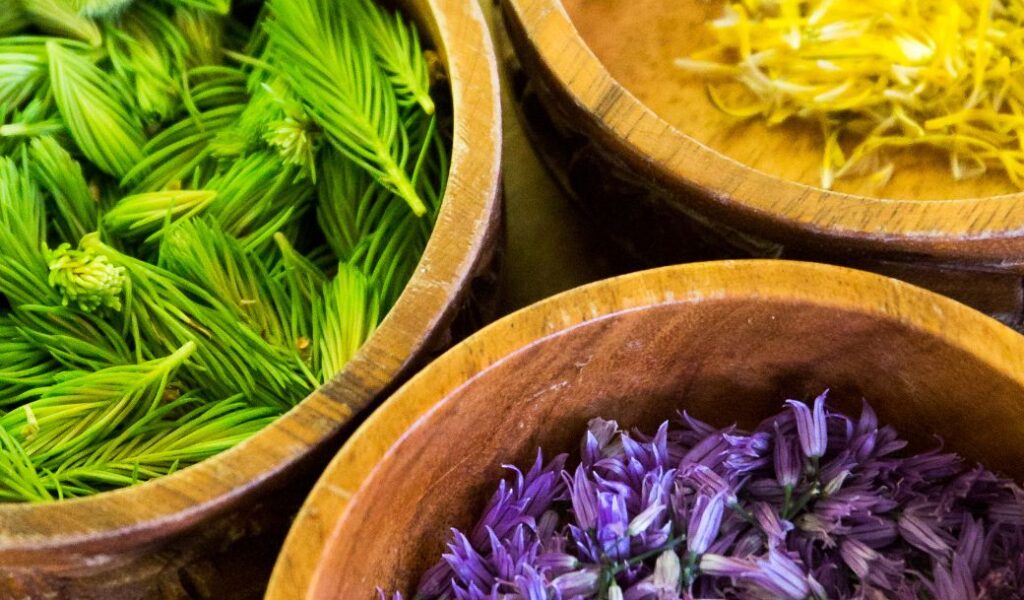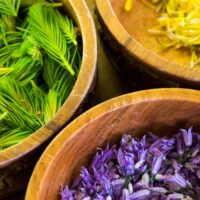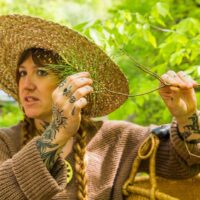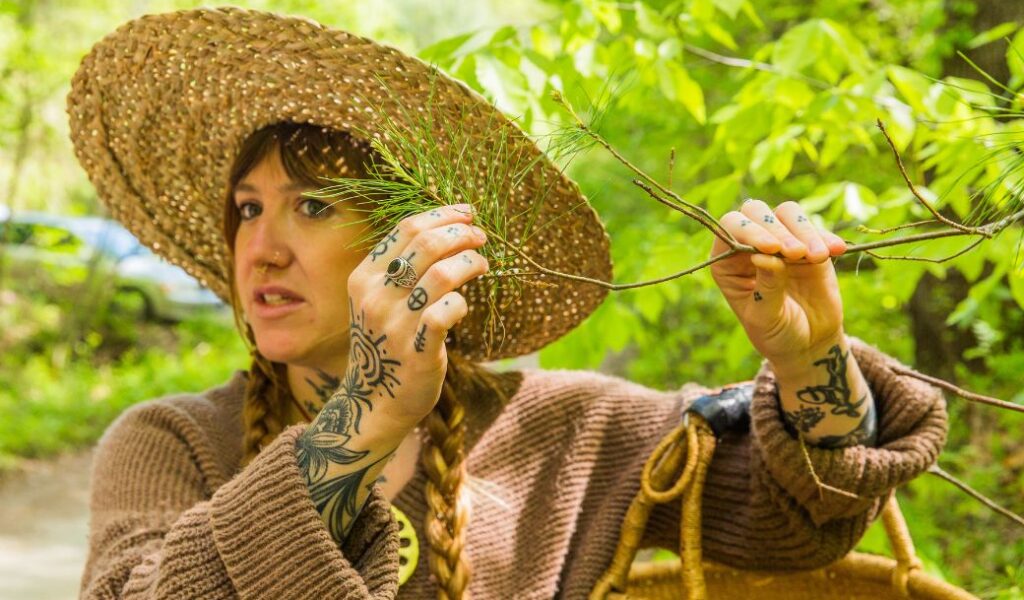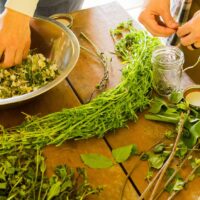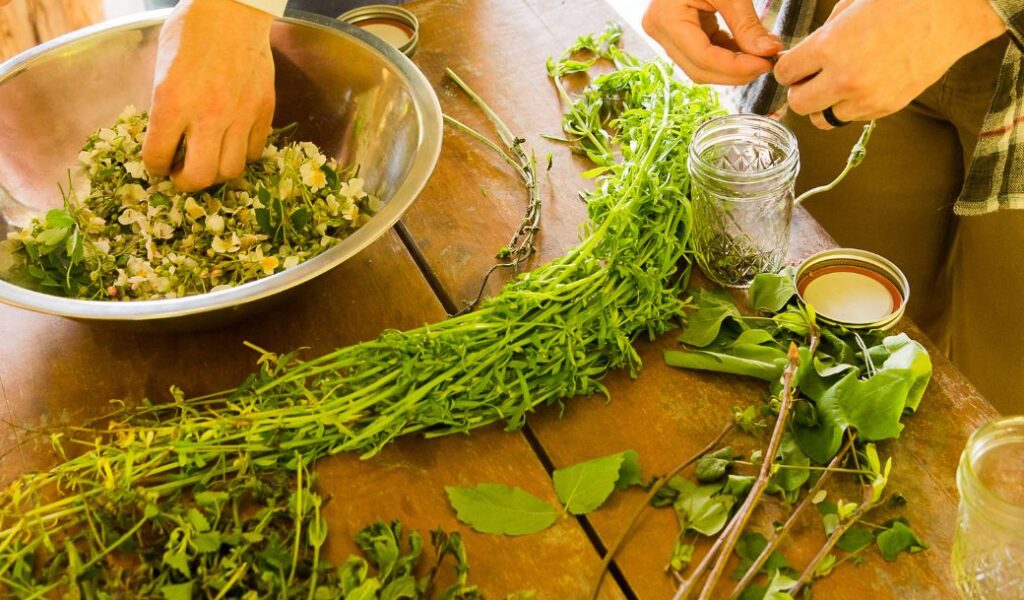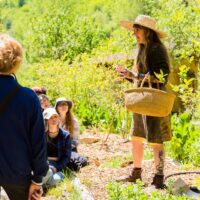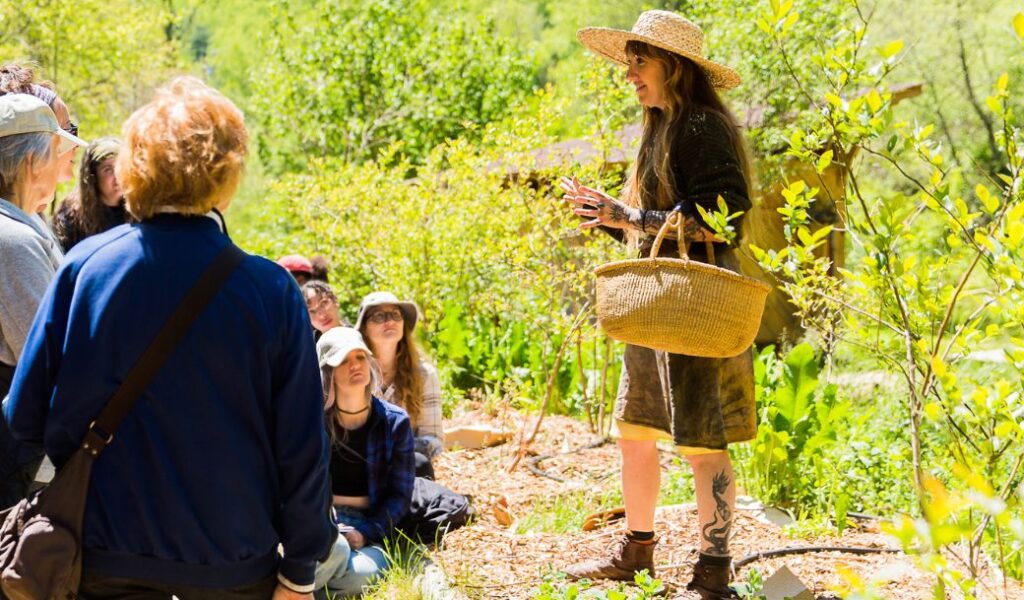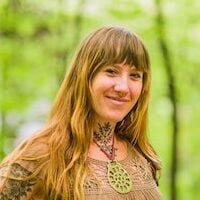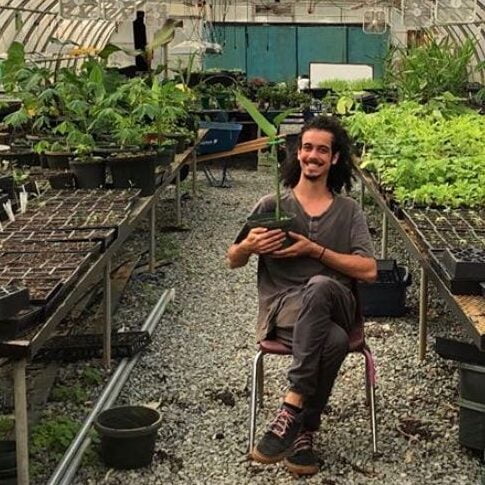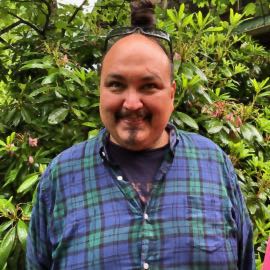Learn how to identify, harvest, prepare, and use plants for healing in this medicinal herbs course
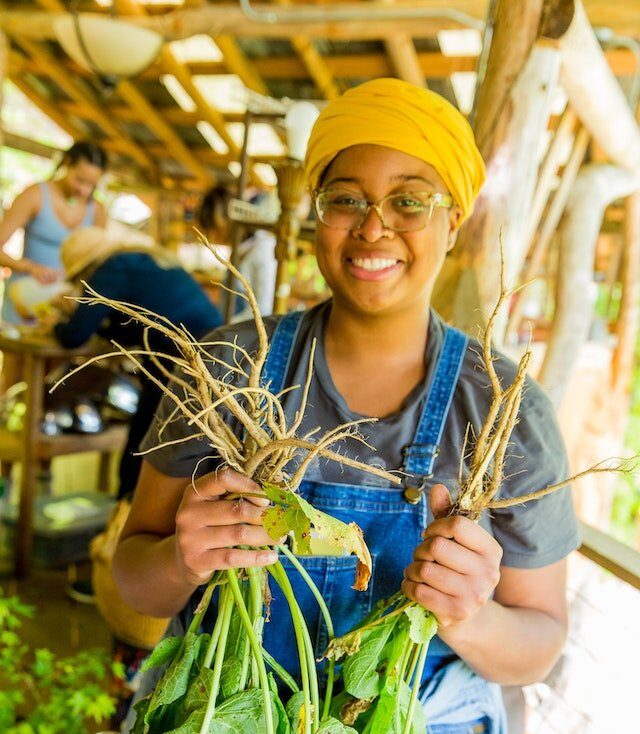

Do you want to take the power of healing into your own hands?
Do you want to learn to recognize and work with plant allies?
Are you drawn to wildcrafting, but feel intimidated?
If so, this wildcrafting and herbal medicine making course is for you! You’ll feel empowered to identify and utilize plants—both wild and cultivated—for healing and vitality.
Join our inspired and experienced team of herbalists, artisans, and ethnobotanists for this four day intensive medicinal herbs course. You’ll leave with a basket full of homemade medicines (made by you!). Plus, you’ll gain the knowledge of how to make more—from plants growing all around you.
What our students say


Ali,
North Carolina
Writer


Caroline,
New Jersey
Doctor of Acupuncture & Chinese Herbal Medicine


Lexie,
North Carolina
Medical Laboratory Technologist
What to expect in this wildcrafting and medicinal herbs course:
Learn how to stock your own herbal apothecary with handmade and wildcrafted medicines.
Starting with a wild plants walk, we’ll learn traditional uses of medicinal herbs, and how to make decoctions, infusions, herbal honeys, cordials, tinctures, oxymels, salves, and more.
We’ll cover plant identification, and the ethics and safety of harvesting, along with medicinal herb cultivation and wild foods cookery.
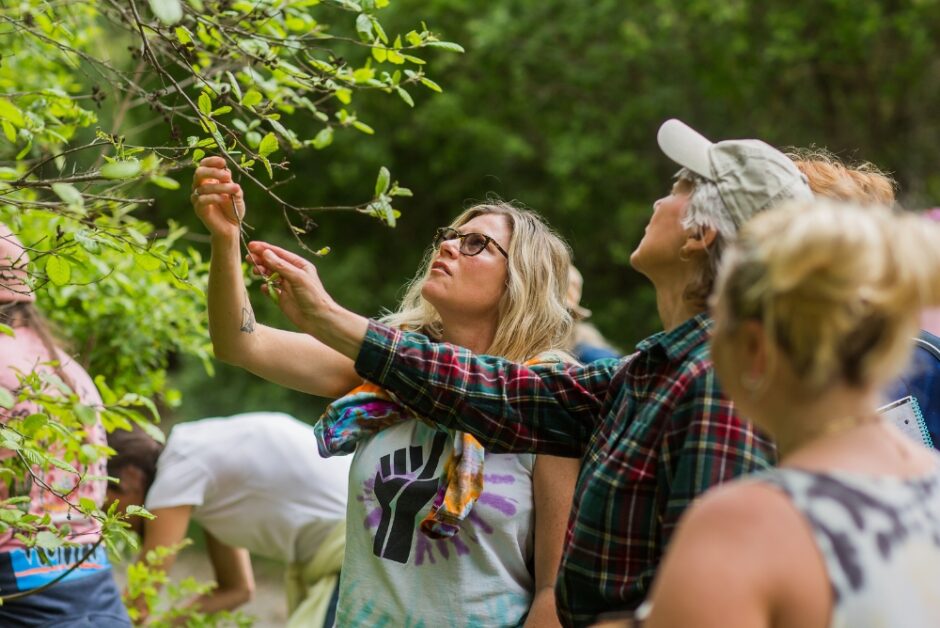

At the beautiful, lush Wild Abundance Sanford Way campus, we’ll explore both wild and cultivated medicinal herbs and wild edibles. Experienced and talented herbalist instructors will guide you in learning to make multiple medicines to fill your apothecary. When these knowledgeable teachers walk you through how to make herbal preparations, you’ll feel confident making your own after the class. Throughout the long weekend of wildcrafting, we’ll make and enjoy tasty herbal treats.
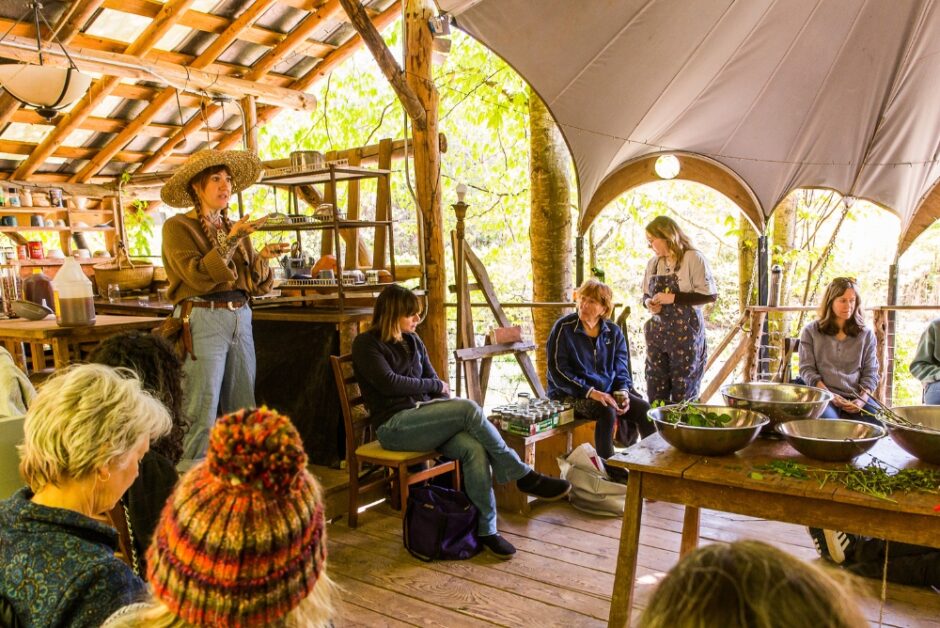

Delight in wildcrafting with the delicious, healing gifts given by the plants.
This herbalist course covers:
Plant Identification
How to get to know wild plants, even if you’ve never met them before, plus how to ID common medicinals and how NOT to confuse them with poisonous plants.
Ethical Wildcrafting Practices
How to harvest responsibly, maintaining healthy wild plant populations through wild tending.
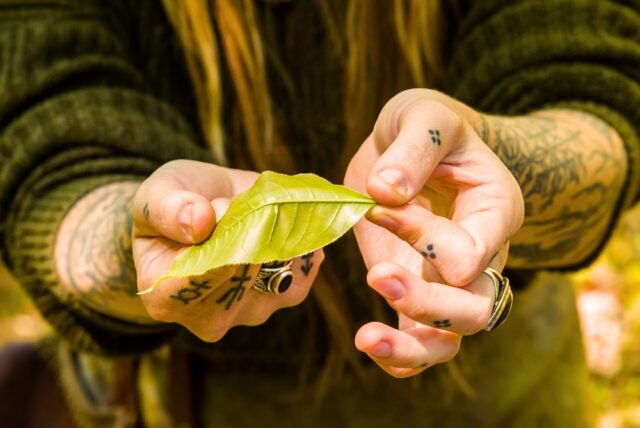

Growing and Propagating Medicinal Herbs at Home
How to start and maintain your own herb garden.
Wild Foods Preparation and Cooking
How to confidently forage and cook wild foods, turning them into delicious meals.
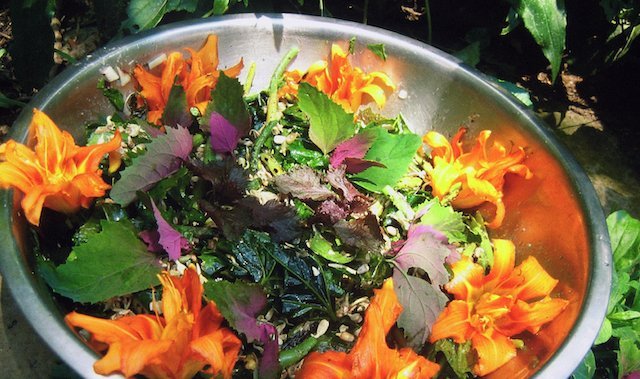

The fields and forest become your pharmacy and market when you learn wildcrafting and herbal medicine making.
Stock your apothecary with these handmade goodies:
Herbal Salves
Topical medicine for skin healing
Herbal Tinctures
Concentrated, shelf-stable plant extracts
Herbal Liqueurs and Cordials
Fun and scrumptious healing drinks
Oxymels
Tasty herbal tonics made with vinegar and honey
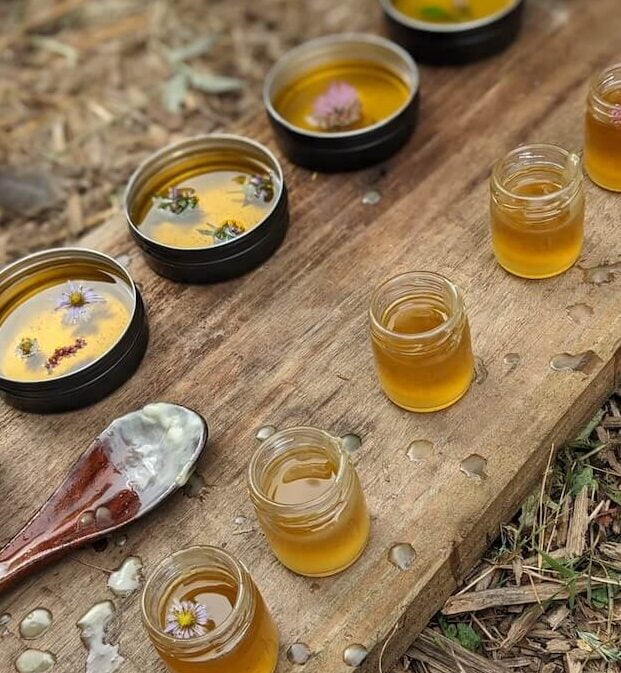
This medicinal herbs course helps you integrate plants into your life
Our students leave not only feeling equipped to wildcraft medicinal herbs themselves, but also inspired and motivated to incorporate these plant allies into their lives. It’s one thing to study the information side of herbalism, to know how to identify wild plants, or to understand how to turn leaves into an herbal preparation; we take a step beyond this.
Our team of instructors—plant lovers who have been wildcrafting for years—actually have relationships with these herbs and use them on a regular basis.
Throughout this medicinal herbs course they will share with you wider reflections like: how they make time to get out into the woods to wildcraft; guidance for growing herbs even if you don’t have a garden; recipes for herbal delights that can be consumed daily and aren’t just for acute conditions; and much more.
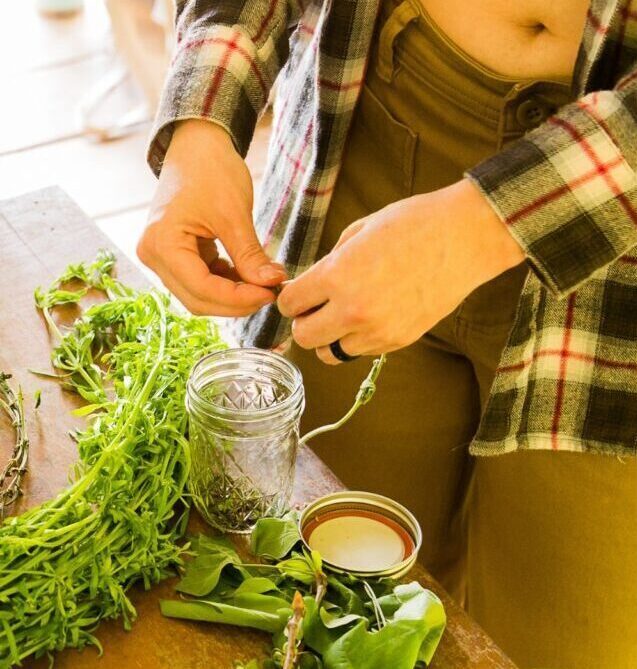
We’re excited about plants (can you tell?), and we can’t wait to share our excitement with you.
During this wildcrafting class, we’ll forage wild foods and make these delicious, nutritious, and medicinal herbal goodies to enjoy together:
Infusions
Easy, tasty teas made from leaves and flowers steeped in hot water
Decoctions
Rich, flavorful teas made from leaves, barks, roots and berries, slow-simmered to perfection (think spiced chai, yum!)
Wildcrafted “Weed” Salad
A colorful and flavorful alternative to plain old lettuce that is higher in nutrients and healing properties
Traditional wild plant delicacies
Cooked dishes based on traditional preparations of the wild plants of these ancient mountains
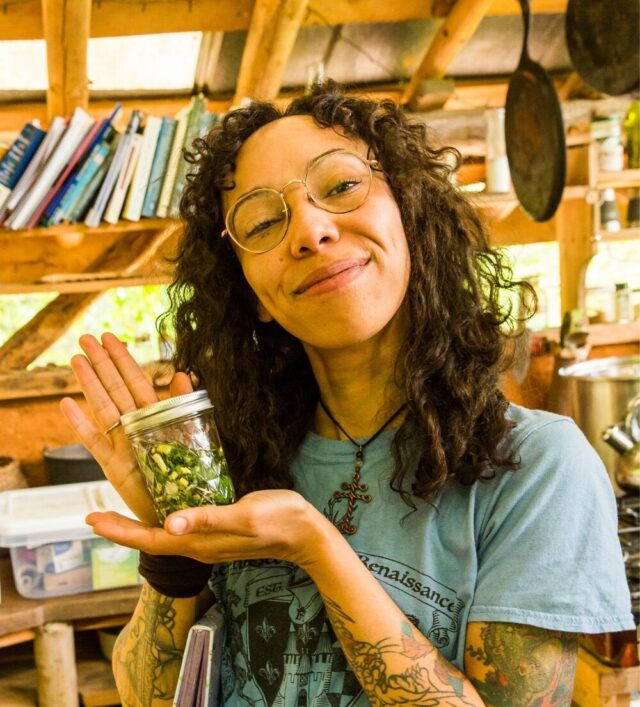
Frequently Asked Questions about this Medicinal Herbs Course
Instructors
Rebecca Beyer
Rebecca Beyer (she/her) is an Appalachian folk herbalist, huntress, and wild food forager dedicated to living simply on the Earth. She has taught and presented at universities, conferences and gatherings over the last nine years with the hope of showing people that living a seasonal life grounded in connection with the Old Ways is possible. ...Brandon Ruiz
Brandon Ruiz (he/him) is a Community Herbalist and Urban Farmer based in Charlotte, NC. His farming project Yucayeke Farms focuses on providing equal and affordable access to herbal medicine and culturally-relevant foods to his community. He specializes in medicines of his native Puerto Rico, throughout the Caribbean and Appalachia.Tyson Sampson
Tyson Sampson (they/them/he/him) is an Eastern Band Cherokee Indian (ᎠᏳᏫᏯ ᎨᏯᏔᎯᎤᏁᏉᎳᏗᏍᎩ). Tyson has been educating about harvesting and processing regional flora for 21 years. “As a kid I always thought we gathered food from the woods because we were poor. As an adult I realized we went to the forest because it brought joy to ...Kearsley Tate Schweller
Kearsley (she/her) is the bioregional Chef, folk herbalist, & artist cooking up local flavors in Kearsley’s Kitchen. She shares her seasonally inspired meals and musings in the form of pop-up dinners, private catering, wildcrafted herbal elixirs, & seasonal cookbooks that detail her favorite recipes, herbal remedies, and rituals for connecting with each season. In 2018 ...This class is held just outside of Asheville, NC, at the Wild Abundance Sanford Way Campus
Wild Abundance’s original home campus is on Sanford Way in Barnardsville, NC. It boasts many gorgeous and functional features, like a leaf-shaped organic permaculture garden, a food forest, a hand built log cabin, an open-air classroom topped with solar panels, and a stunning wattle and daub outdoor kitchen.
Please note: our campuses are all unconventional, with rustic amenities and uneven ground. Read more about Planning your trip and about our campuses. It takes about 25 minutes to get here from Asheville.
Pricing for Wildcrafting and Medicine Making Intensive
Regular Pricing: $750 – $1,500
Please pay what you can afford. The median price is suggested to help cover the full cost of hosting this class. Please select the low end of the sliding scale if you are low income. If your household income is over $115,000/year, please select the maximum fee. Please place yourself in this range where you deem appropriate, based on your income.
Course Dates:
May 30 to Jun 2, 2024(filled)- Sep 12-15, 2024
Join the WAITLIST to be the first to know when this class opens up for enrollment.
You'll also receive our newsletters

